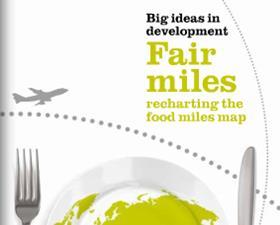
A leading fresh produce association has welcomed publication of a new book by a major NGO Oxfam, which claims that consumer concern over climate change could do more harm than good if it cuts demand for food produced in developing nations.
The UK-based Fresh Produce Consortium (FPC) said the ‘Fair Miles’ report, by Oxfam and the International Institute for Environment and Development (IIED), was “a welcome step towards encouraging consumers to enjoy fruit and vegetables, irrespective of country of origin, and be reassured their food choices are ethical and sustainable”.
The book’s authors claim locally produced food can actually cause greater emissions of greenhouse gases, and that consumers can harm the livelihoods of poor farmers in developing nations if they stop buying their produce.
It has been produced in response to growing calls for consumers to ‘eat local’ to help tackle climate change — calls that the book’s authors say do not tell the full story.
“Climate change will hit poorer rural people in developing nations first, fastest and hardest,” said James MacGregor of IIED in a statement.
“High-value trade with such nations is critical to build rural economies that are resilient to climate change. The trade in fresh produce is one part of a global solution to this challenge.”
The book argues that even when food travels a long distance by plane it can result in lower overall emissions than food that travels shorter distances, because of other sources of emissions.
Produce grown in Africa under the sun and flown to Europe can produce lower emissions than produce grown in Europe in heated glasshouses and transported by train or boat, the report added.
“We need to tackle climate change, but the concept of ‘food miles’ is confusing,” said Nigel Jenney, Chief Executive of the Fresh Produce Consortium.
“Let’s look at the carbon footprint of the whole product supply chain and provide consumers with robust advice with which to make informed decisions.”






No comments yet